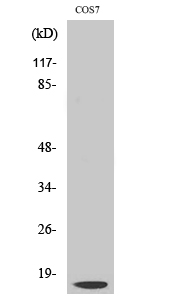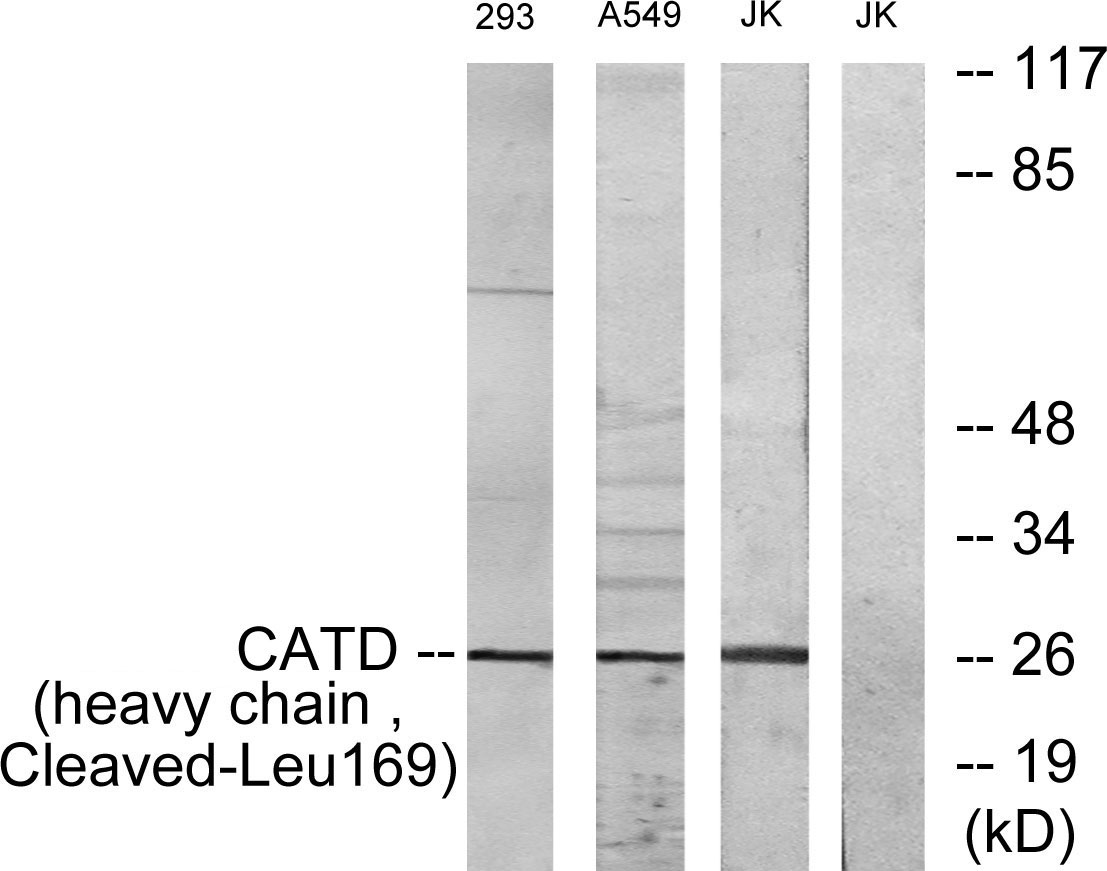Cleaved-Cathepsin D HC (L169) Cell-Based Colorimetric ELISA Kit
- Catalog No.:KA3941C
- Applications:ELISA
- Reactivity:Human
- Gene Name:
- CTSD
- Human Gene Id:
- 1509
- Human Swiss Prot No:
- P07339
- Mouse Swiss Prot No:
- P18242
- Storage Stability:
- 2-8°C/6 months
- Other Name:
- Cathepsin D (EC 3.4.23.5) [Cleaved into: Cathepsin D light chain;Cathepsin D heavy chain]
- Detection Method:
- Colorimetric
- Background:
- catalytic activity:Specificity similar to, but narrower than, that of pepsin A. Does not cleave the 4-Gln-|-His-5 bond in B chain of insulin.,disease:Defects in CTSD are the cause of neuronal ceroid lipofuscinosis 10 (CLN10) [MIM:610127]; also known as neuronal ceroid lipofuscinosis due to cathepsin D deficiency. The neuronal ceroid lipofuscinosis are a group of progressive neurodegenerative diseases in children and in adults, characterized by visual and mental decline, motor disturbance, epilepsy and behavioral changes.,function:Acid protease active in intracellular protein breakdown. Involved in the pathogenesis of several diseases such as breast cancer and possibly Alzheimer disease.,polymorphism:The Val-58 allele is significantly overrepresented in demented patients (11.8%) compared with non-demented controls (4.9%). Carriers of the Val-58 allele have a 3.1-fold increased risk for developing AD than non-carriers.,similarity:Belongs to the peptidase A1 family.,subcellular location:Identified by mass spectrometry in melanosome fractions from stage I to stage IV.,subunit:Consists of a light chain and a heavy chain.,
- Function:
- autophagic vacuole formation, proteolysis, autophagy, vacuole organization, cell death, cellular response to starvation, response to extracellular stimulus, macroautophagy, death, response to nutrient levels, cellular response to extracellular stimulus, cellular response to nutrient levels, cellular response to stress, response to starvation,
- Subcellular Location:
- Lysosome. Melanosome. Secreted, extracellular space. Identified by mass spectrometry in melanosome fractions from stage I to stage IV. In aortic samples, detected as an extracellular protein loosely bound to the matrix (PubMed:20551380). .
- Expression:
- Expressed in the aorta extracellular space (at protein level) (PubMed:20551380). Expressed in liver (at protein level) (PubMed:1426530).
- June 19-2018
- WESTERN IMMUNOBLOTTING PROTOCOL
- June 19-2018
- IMMUNOHISTOCHEMISTRY-PARAFFIN PROTOCOL
- June 19-2018
- IMMUNOFLUORESCENCE PROTOCOL
- September 08-2020
- FLOW-CYTOMEYRT-PROTOCOL
- May 20-2022
- Cell-Based ELISA│解您多样本WB检测之困扰
- July 13-2018
- CELL-BASED-ELISA-PROTOCOL-FOR-ACETYL-PROTEIN
- July 13-2018
- CELL-BASED-ELISA-PROTOCOL-FOR-PHOSPHO-PROTEIN
- July 13-2018
- Antibody-FAQs


